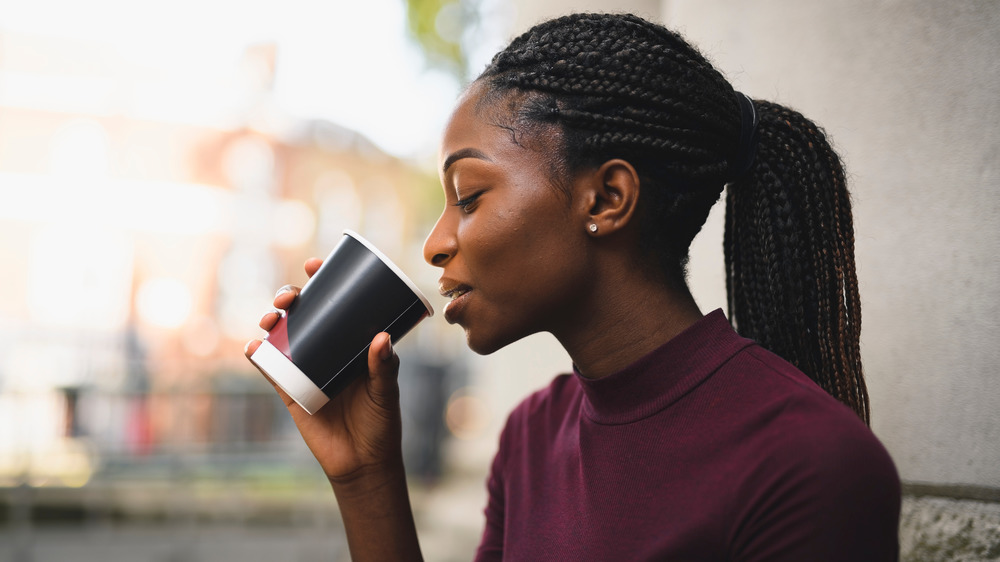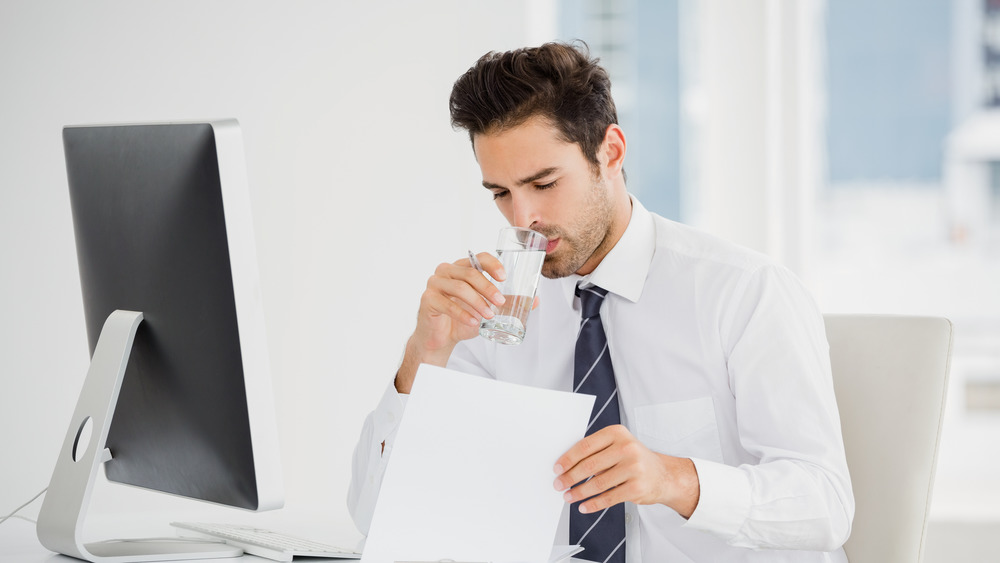The Real Reason You're Always Thirsty
Feeling thirsty is your body's way of telling you it's low on water, and it's normal to feel dehydrated after a workout or when it's hot. According to the Mayo Clinic, women need about 11.5 cups of fluids and men need about 15.5 cups a day. You may have heard that you should drink eight glasses of water a day, but some need more and some need less. When in doubt, check your urine. You're getting enough water if it's colorless or light yellow.
But what if you're always thirsty? There is a chance you could be drinking too much water, and that's bad for your health. If you're constantly refilling your water bottle or drinking much more than the recommended amount, it could be due to a health problem. Your kidneys are responsible for getting rid of excess water, but if you drink too much too fast, they won't be able to keep up. When this happens, your blood's sodium level gets diluted. It's called hyponatremia and can be life-threatening, per Mayo Clinic.
So, how much water is too much? About one liter an hour is the maximum your kidneys can handle, according to Healthline. Your kidneys can't excrete the excess faster than that.
If you're always thirsty, it could be caused by dehydration, diabetes, diabetes insipidus, dry mouth, or anemia, according to WebMD. It could also be caused by an autoimmune disease or eating too much salt, according to Self.
Causes of excessive thirst
If you're dehydrated, it's because you're not getting enough fluids, which can come from water, other beverages, and foods like fruits and vegetables. Causes of dehydration are exercising, having diarrhea, excessive sweating, or vomiting.
If you can't quench your thirst, one reason might be diabetes, which makes you lose too much water when you pee because your body is trying to eliminate extra sugar. Other symptoms include blurry vision, feeling tired and hungry, and having cuts or bruises that heal slowly.
If you have excessive thirst, you might have diabetes insipidus, which isn't related to diabetes. This condition makes it difficult for your kidneys to regulate the amount of water in your body. Other symptoms are an urge to pee often and dehydration.
Dry mouth can also cause excessive thirst, which happens when the glands in your mouth don't make enough saliva. You might have dry mouth due to certain medications, cancer treatments, nerve damage in the neck or head, tobacco use, or Sjogren's syndrome. Other dry mouth symptoms are bad breath, irritated gums, thick saliva, change in taste, and difficulty chewing.
The final reason for thirst is anemia. This means your body doesn't make enough red blood cells. Causes of anemia include heavy bleeding or a poor diet. Symptoms are tiredness, weakness, dizziness, sweating, fast pulse, and pale or yellowish skin. When in doubt, see your doctor and ask them which medications or conditions could be causing it, according to WebMD.


